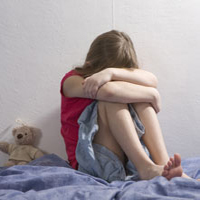MENU
- Home
- Overview
- Attorneys
- Practice Areas
- Firm News
- Blog
- Contact
 Children are often the target of sexual abusers. In fact, children are three times more likely to be victims of rape than adults. The majority of child abusers are either a family member, or someone the child knows and trusts. This sad social dynamic provides insight into the nature of the crime, as well as the devastating impact the crime has on its victims.
Children are often the target of sexual abusers. In fact, children are three times more likely to be victims of rape than adults. The majority of child abusers are either a family member, or someone the child knows and trusts. This sad social dynamic provides insight into the nature of the crime, as well as the devastating impact the crime has on its victims.
Sexual abuse encompasses a wide range of conduct. The Incest Survivors Resource Network states, “the erotic use of a child, whether physically or emotionally, is sexual exploitation in the fullest meaning of the term, even if no bodily contact is ever made.”
Any form of sexual exploitation where the victim does not or cannot give consent to the action, or gives consent under duress, is sexual abuse.
When the abuser is known, coercion and manipulation are often used to keep the misconduct secret. The abuser will frequently try to make the victim feel responsible for the abuse, usually by making them feel shame.
Children who have been sexually abused experience a great deal of stress and trauma. Their state of mind is altered in significant ways. Fear, shame, and powerlessness are all common. A child who is the victim of prolonged sexual abuse will often develop low self-esteem, feelings of worthlessness, and a distorted view of sex. They can become withdrawn, mistrust adults, and even become suicidal.
There are many symptoms associated with sexual abuse. In the short term, younger children may exhibit regressive behaviors such as a return to thumb-sucking or bed-wetting. Children of all ages may exhibit sleep disturbances, eating problems, trouble at school, become secretive, and being unwilling to participate in school or social activities. They will often have unusual sexual knowledge or behavior, have sexual components to drawings and games, and may even force sexual acts on other children.
In the longer term, behavioral difficulties are common. Avoidant behaviors such as a refusal to go to school, the doctor, or home are often seen. Victims may develop a fear of being touched or avoid people who remind them of the abuser.
Neurotic reactions such as obsessions, compulsions, and phobias, or habits such as biting, rocking, or cutting can happen. In extreme cases, victims can experience Post Traumatic Stress Disorder (PTSD).
Drug and alcohol abuse and eating disorders are all common outcomes. Addiction specialists estimate that up to 90 percent of their patients have a known history of some sort of abuse. Victims are also more prone to being victims of sexual assaults by other abusers.
Victim blaming and shaming is inappropriate, and can be very damaging. Recovery is possible. All victims can gain needed perspective and strength through psychological counseling.
Children with a supportive, caring adult consistently in their lives recover faster and better than those lacking such support. This can also help them avoid the unfortunate outcomes that such abuse can produce.
An important step in healing is to confront the abuser and hold them accountable. A Georgetown sexual abuse lawyer at Jacobs & Crumplar, P.A. will defend clients vigorously, with the goal of empowering them to seek justice in order to enable them to move forward without fear or shame. Call 302-656-5445 or complete our online form for a free initial consultation in a supportive environment. From our offices in Georgetown, Delaware we represent clients throughout the state.